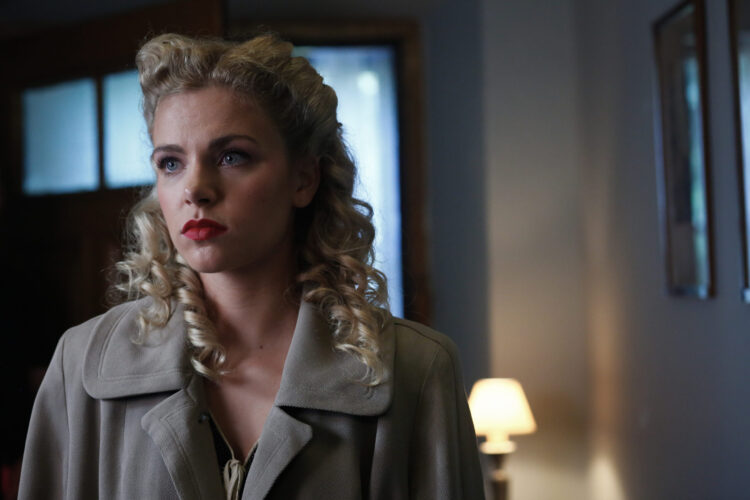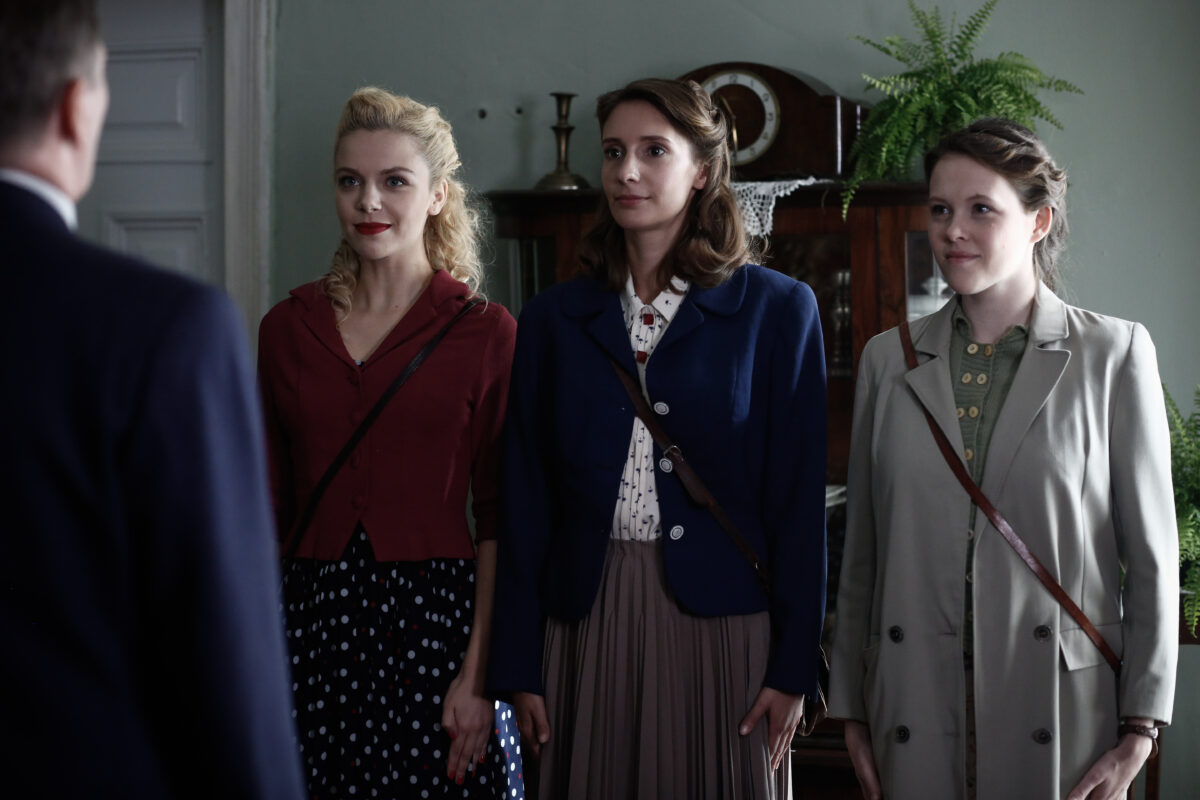Warsaw 1942.
The third season of Wartime Girls, an atmospheric and suspenseful Polish television series that will be available on the ChaiFlicks streaming platform starting on January 12, takes place in that fateful year.
It unfolds in Polish, German and English and revolves around three young Polish women from different socio-economic and religious backgrounds.
Ewa (Vanessa Aleksander), feisty and crafty, comes from a petty criminal clan. Irka (Marta Mazurka), refined and delicate, hails from a solid middle-class family. Marysia (Aleksandra Pisula), intellectually-inclined and vulnerable, is from a Jewish background.
Under normal circumstances, they may never have met. But in Nazi-occupied Poland, they bond as friends and co-conspirators as members of the Home Army, the Polish resistance organization that fought the Germans in a relentless guerrilla war.
Season three opens in the third year of the German military occupation, which resulted in the mass murder of six million Jews and Catholics. Being patriotic Poles, Irka, Ewa and Marysia join the Polish underground, whose modus operandi is to sabotage and upend German operations.
In the first scene of the first episode, Marysia, disguised as a German, enters a plant which prints a Nazi-finanaced Polish newspaper. Her host, an ethnic German Pole, exults in Germany’s persecution of Poland’s Jewish population. “We’re getting rid of the Jews,” he exclaims gleefully. Having been sufficiently provoked, Marysia slams him in the face with her pistol.
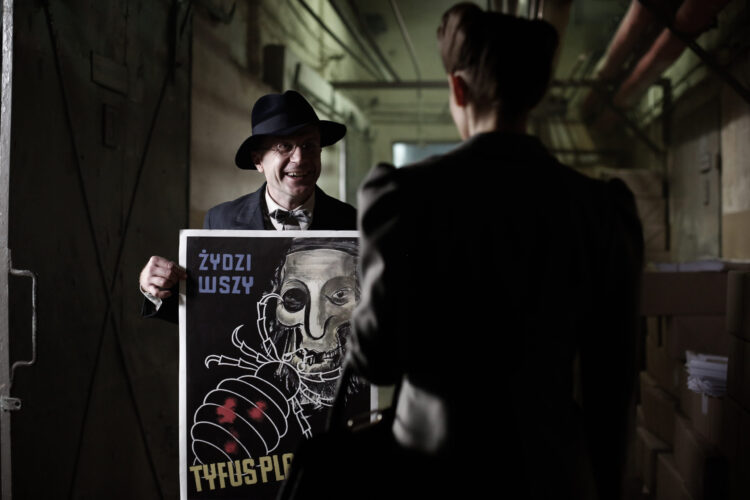
As she makes her way out of the factory, she leaves a ticking bomb in her suitcase. It explodes in a flaming ball of fire and smoke, destroying the printing presses. Mission accomplished.
Marysia, in her next assignment, is instructed to deliver typhus vaccines to the Warsaw ghetto, which is plagued by a rash of epidemics and whose inhabitants are on the cusp of being deported en masse to the Treblinka extermination camp.
She obtains the vaccines from a Polish scientist in the employ of the Germans. Marysia’s boyfriend, Andrzej (Sebastian Jasnoch), a physician, delivers the vaccines to the sealed ghetto. There, on a sidewalk, he encounters an emaciated woman starving to death.
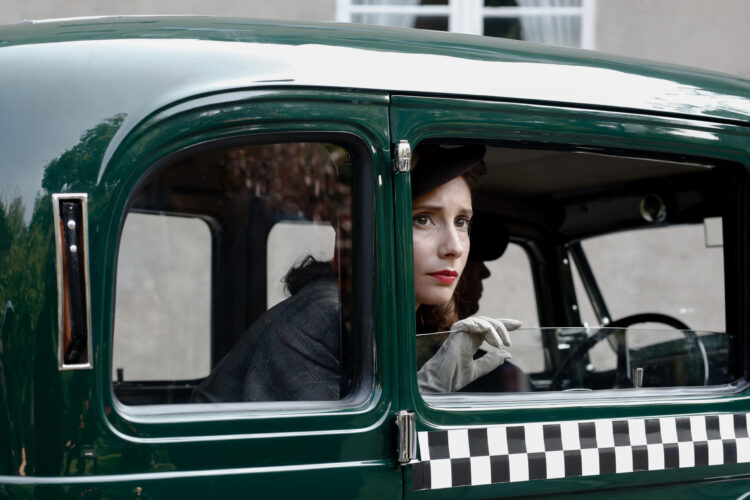
Zosia, Marysia’s sister, has gone into hiding with her boyfriend in Warsaw. They must be very careful because informers are everywhere. In a stairwell, the Polish girlfriend of a German soldier spies Zosia and shouts, “She’s a Jew!” several times. Zosia manages to escape, and Ewa and Irka find her a safe apartment. In a poignant scene, Marysia, Zosia and Ewa lie in bed together, the plaintive melody of a famous Yiddish folksong resonant in their ears.
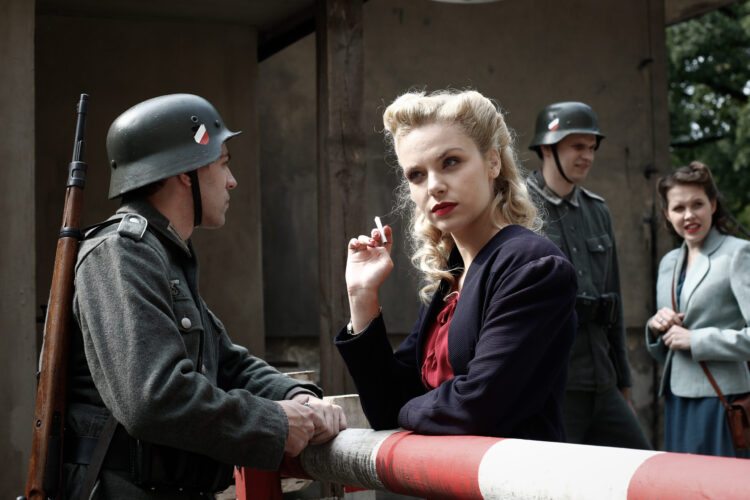
Marysia, in the meantime, is being trained to masquerade as a German countess. Margarethe von Losein (Katrin Buhring), a dogged German intelligence agent, is hot on her trial.
Kamil Brodski (Józef Pawłowski), Irka’s prewar finance, suddenly turns up in Britain as a British agent after having vanished as a Polish army officer in the opening days of World War II. In season two, he was thought to be a traitor, a German spy, but now he emerges as a proud Pole. Back in Poland, Brodski’s assignment is to ascertain whether Aloysha, a Polish woman, is working for the Germans.
Witek (Michel Czernecki), a recurring character, is Irka’s older brother. A Home Army commander, he has been posted to Radom to work in a German arms factory. Between assignments, he and Ewa make out, having fallen deeply in love.
Two new characters are introduced. Leon (Marcin Korcz), a Polish engineer, pretends to be a German agent. Von Schnitz, a Gestapo officer, is attracted to Marysia in her convincing disguise as a German aristocrat. Von Schnitz spends a good deal of this time trying to locate a Polish radio transmitter. At her request, he drives Marysia into the ghetto, where she takes photographs and, in an uncomfortable moment, she stares into the eyes of an expressionless bearded Jewish man.
Judging by the first five episodes, Wartime Girls, directed by Michal Rogalski, holds a viewer’s attention from start to finish. In terms of production values, it is poised and polished, with credible performances from the cast.
It is one of those rare television productions you will long remember.
